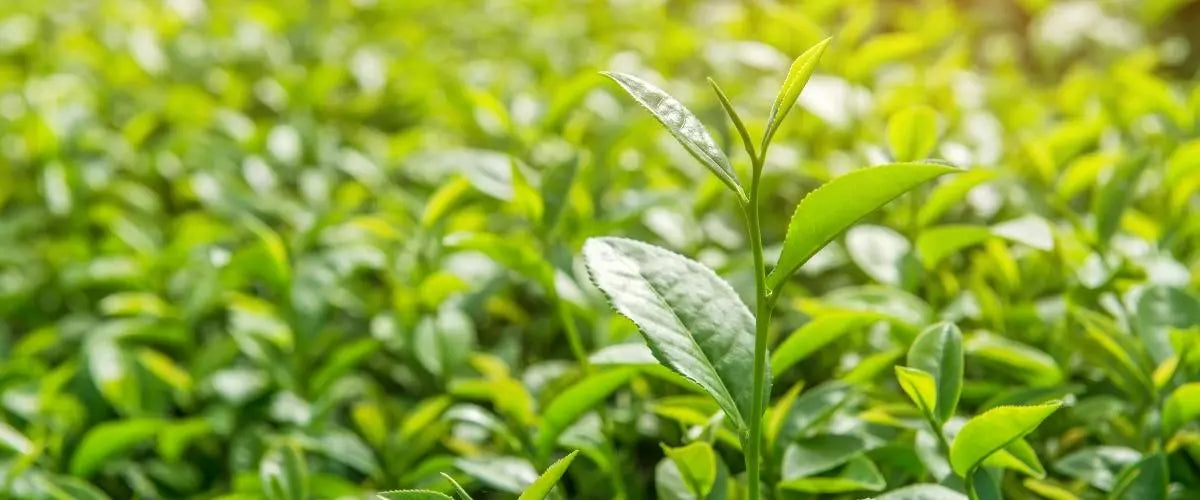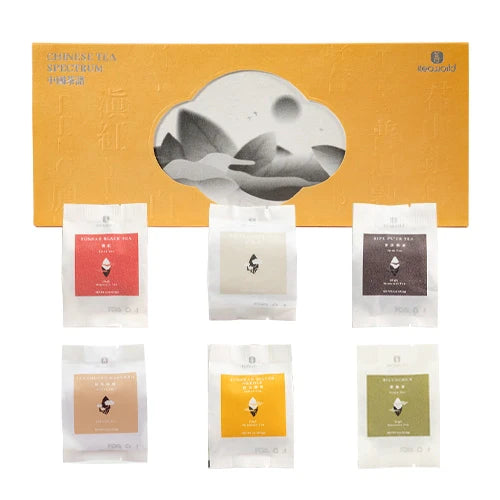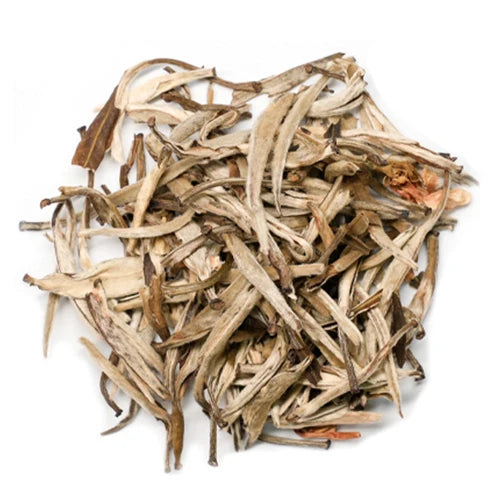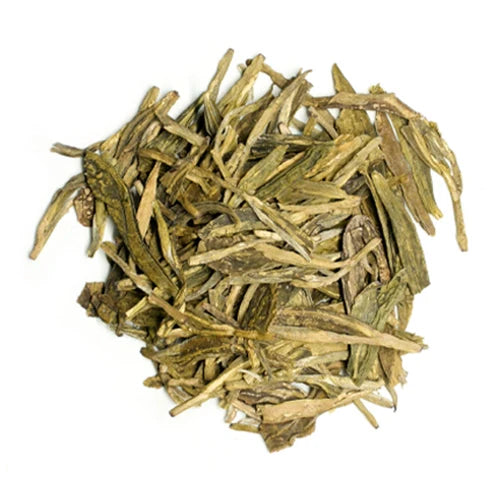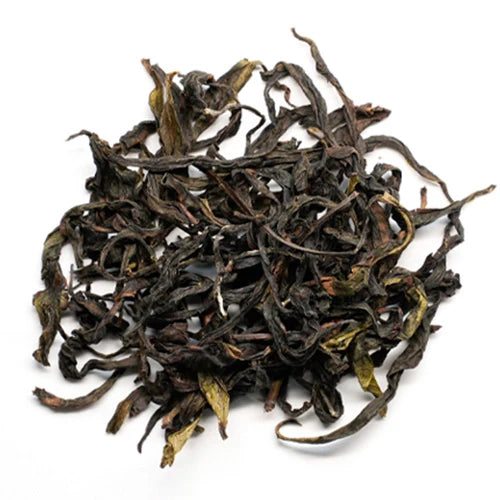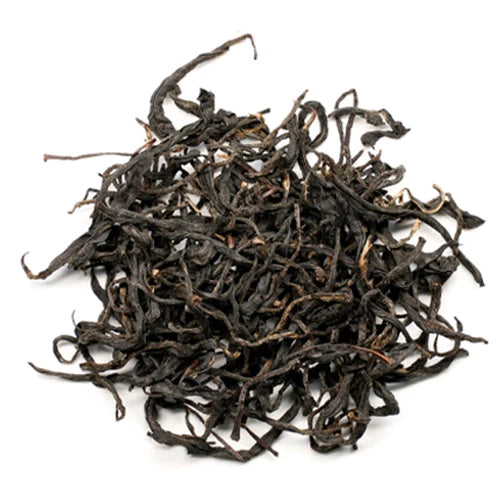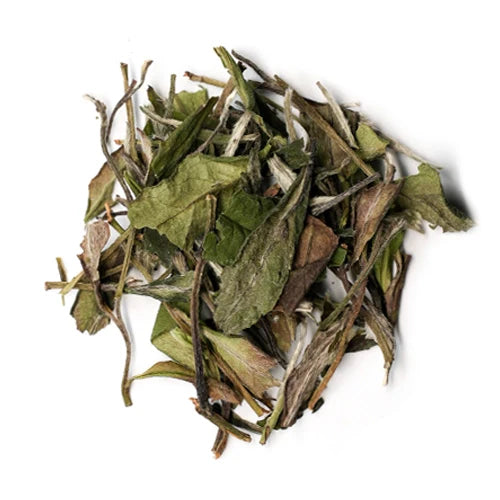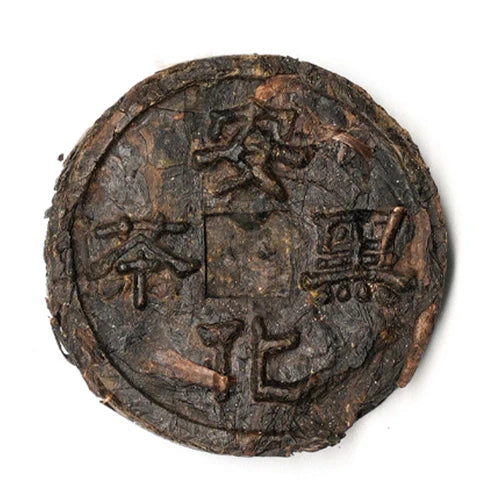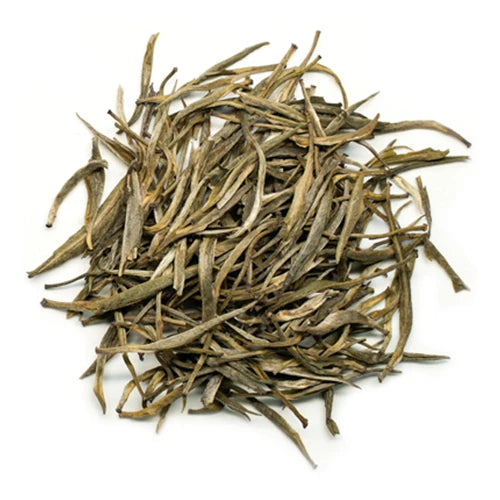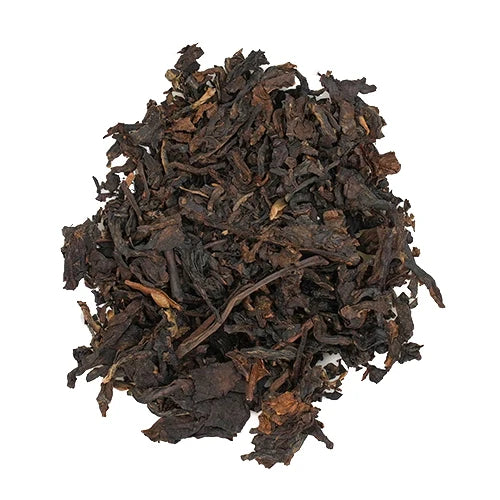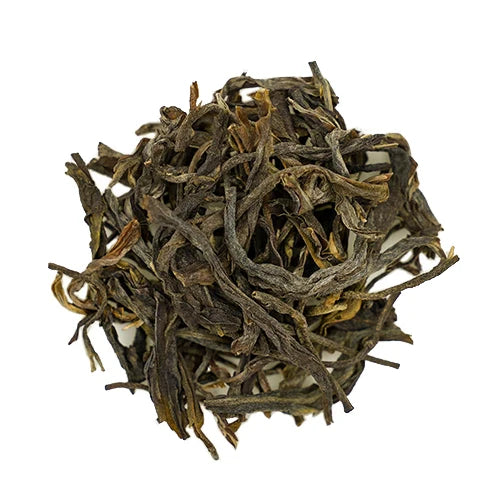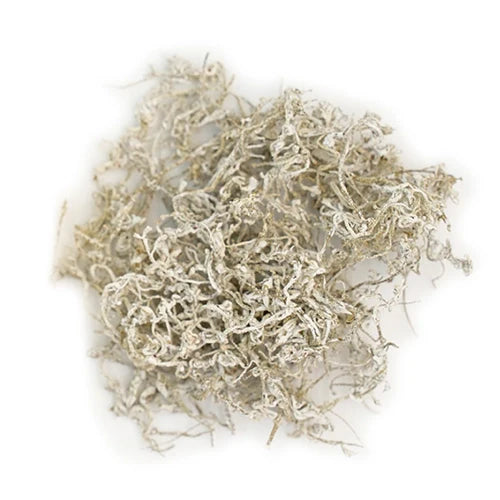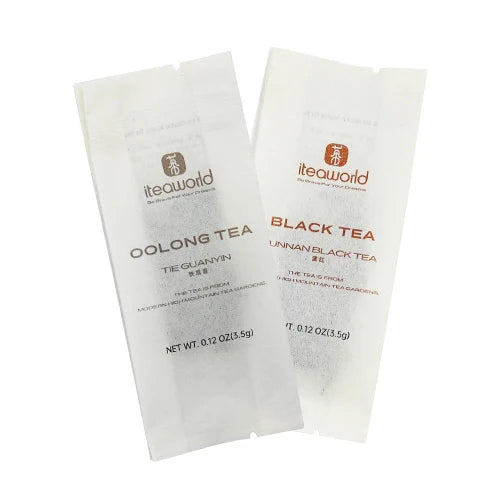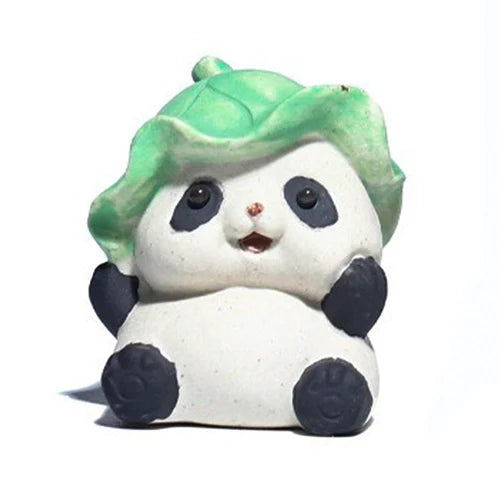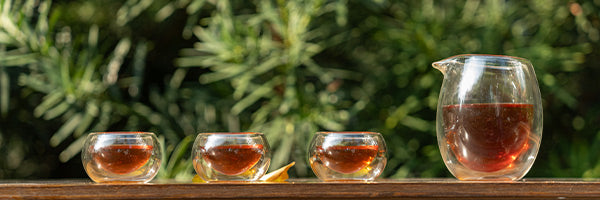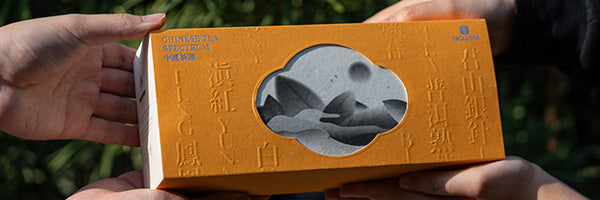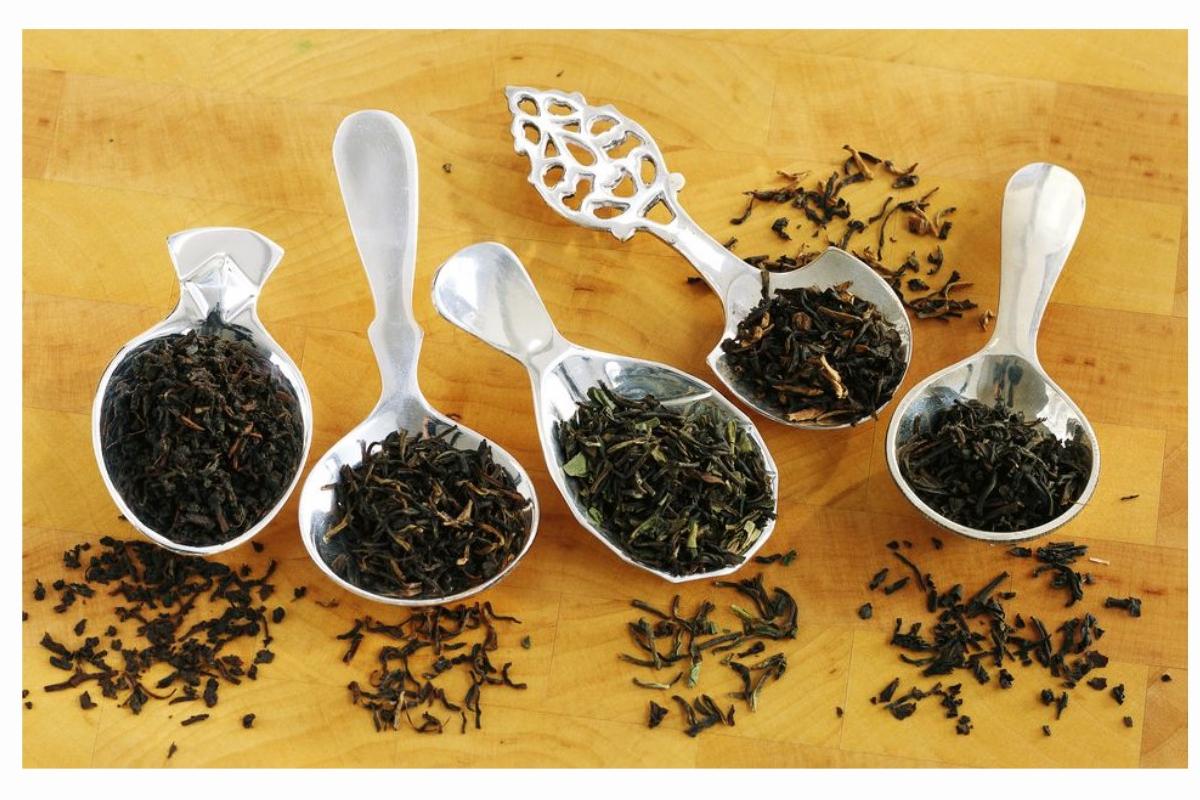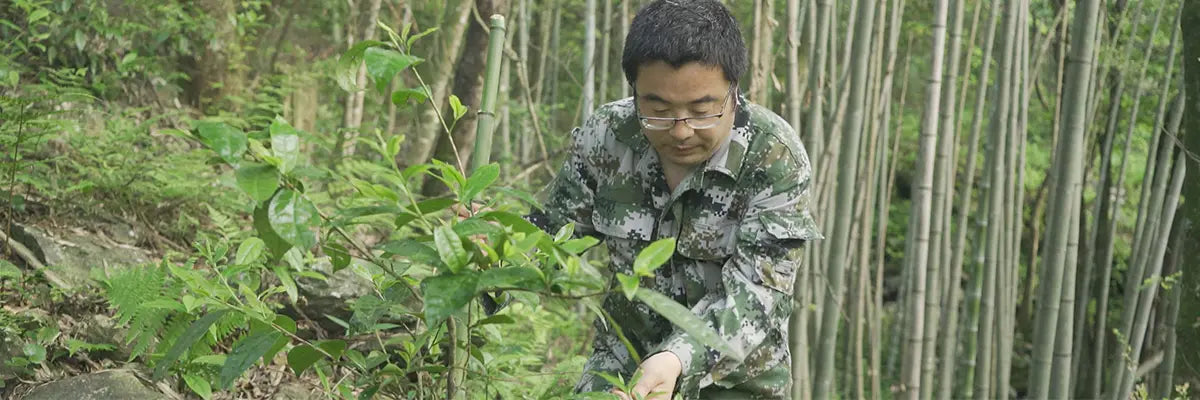Introduction
Tea, with its rich history and cultural significance, has been enjoyed by people around the world for centuries. Among its various types, black tea stands out for its robust flavor and versatility. In this article, we delve into the realm of loose leaf black tea, exploring its characteristics, brewing techniques, popular varieties, health benefits, and more. Join us on this delightful journey as we uncover the enchanting world of loose leaf black tea.
I. Characteristics of Loose Leaf Black Tea
Loose leaf black tea is renowned for its distinct characteristics. We explore the processing methods involved, the varying degrees of oxidation, and the resulting flavors and aromas. From bold and malty to floral and fruity, loose leaf black tea offers a wide range of flavor profiles that cater to diverse palates. Additionally, we delve into the potential health benefits associated with consuming black tea.
II. Brewing Loose Leaf Black Tea
To fully appreciate the nuanced flavors of loose leaf black tea, proper brewing techniques are essential. We discuss the equipment and tools required for a satisfying tea experience and delve into the significance of water temperature and steeping time. Whether you prefer the simplicity of Western-style brewing or the precision of Gongfu-style, we provide step-by-step instructions to help you achieve the perfect cup of black tea.
III. Popular Loose Leaf Black Tea Varieties
When it comes to loose leaf black tea, there is a wide array of popular varieties that have gained recognition and captivated tea enthusiasts worldwide. Let's delve deeper into these beloved black tea varieties:
1. Guangxi Black Tea:
From the Guangxi region in China, Guangxi Black Tea is produced from ancient tea trees. This black tea variety offers a smooth and mellow flavor with hints of chocolate and honey. The leaves are carefully harvested from old-growth trees, adding a touch of elegance to the tea-drinking experience.
Guangxi Black Tea offers a delightful combination of flavors and characteristics. It is cherished for its sweet taste, which is complemented by a highly resteepable nature and low astringency. The slow fire roasting technique employed during its production enhances the tea's unique qualities. The resulting brew unveils a sweet aroma with a subtle and light smoky scent, adding an intriguing layer to the tea-drinking experience.
The unparalleled sweetness, coupled with the captivating aroma and light smoky undertones, make Guangxi Black Tea a cherished choice among tea enthusiasts. Its remarkable resteepability allows for multiple infusions, ensuring that each cup is a moment to be savored. As you indulge in this tea, let its flavors transport you to the deep mountains of Guangxi, where the old tea trees stand as guardians of tradition and excellence.

2. Yunnan Black Tea:
Hailing from the Yunnan province in China, Yunnan black tea is known for its golden buds and robust flavor. It exhibits a malty and slightly peppery taste with subtle hints of cocoa and sweet potatoes. Yunnan black tea has gained popularity for its rich and full-bodied profile, making it a favorite among black tea enthusiasts.
Yunnan Black Tea boasts a strong and long-lasting flavor that sets it apart from other black tea varieties. Its rich and full-bodied taste is accompanied by subtle notes of cocoa and sweet potatoes, creating a uniquely satisfying tea-drinking experience. What makes Yunnan Black Tea truly remarkable is its high brew tolerance, allowing for multiple infusions without losing its flavor and strength.
The large-leaf tea trees of Yunnan, coupled with time-honored cultivation and processing techniques, contribute to the exceptional quality of Yunnan Black Tea. Each sip embodies the heritage and rich tea culture of the region, transporting you to the picturesque tea gardens of Yunnan.
Embrace the boldness and depth of Yunnan Black Tea as you partake in its strong, flavorful brew. Let its high brew tolerance and enduring taste accompany you through multiple infusions, making each cup a journey of rich flavors and sensory delight.
3. Souchong Black Tea:
Souchong black tea is a Chinese black tea with a robust flavor. Made from large leaves smoke-dried over pinewood fires, it offers a unique and bold taste experience.
Souchong Black Tea undergoes a modern charcoal technique that omits baking during the withering phase and utilizes charcoal for the drying process, resulting in a delightful infusion with a perfumy floral aroma, sweetness, and briskness.
The combination of the high altitude, abandoned tea gardens, and the skilled use of both traditional and modern techniques results in a captivating tea. Souchong Black Tea offers a robust and bold flavor profile. It provides a memorable tea-drinking experience that transports you to the misty mountains of Guangxi, where the tea gardens, once forgotten, have been reimagined to produce this exceptional black tea.
Indulge in the rich flavors and intoxicating aroma of Souchong Black Tea as you embrace its unique origin and craftsmanship. Let the modern charcoal create a symphony of flavors that awaken the senses and invite you to savor each sip.
4. Yingde Black Tea:
Grown in the Yingde region of Guangdong province in China, Yingde black tea is highly regarded for its smooth and sweet taste. It exhibits a rich, malty flavor with notes of caramel and chocolate. The tea's unique growing conditions and processing techniques contribute to its exceptional quality and flavor profile.
Renowned as China's world-class high-aroma black tea, Yingde Black Tea captivates tea enthusiasts with its captivating fragrance and exquisite flavor profile. The tea leaves undergo meticulous processing, which brings forth a harmonious balance of floral and fruity notes, resulting in a truly delightful tea-drinking experience.
In recognition of its outstanding qualities, Yingde Black Tea received a remarkable accolade. In 2019, the International Tea Council honored Yingde Black Tea as the world's finest high-aroma black tea, solidifying its position as one of the most esteemed black teas globally. This recognition reflects the dedication and skill of the tea artisans who have mastered the art of producing this remarkable tea.
As you savor a cup of Yingde Black Tea, let its enticing aroma and refined taste transport you to the enchanting tea gardens of Yingde City. Experience the pinnacle of black tea craftsmanship and indulge in the elegance and sophistication that this extraordinary tea offers.
5. Wild Souchong Black Tea:
Harvested from wild tea trees in the mountainous regions of China, Wild Souchong black tea offers a distinctive and robust flavor. The leaves are gathered from ancient trees in their natural habitat, giving the tea a complex and earthy taste. This tea variety provides a captivating experience for those seeking a unique and untamed black tea.
Derived from wild tea plants, this tea possesses a distinct flavor of wildness that sets it apart from cultivated varieties. The untamed character of the tea leaves infuses the brew with a captivating depth and complexity, offering a truly remarkable tea-drinking experience.
As you indulge in Wild Souchong Black Tea, you'll discover the unique flavors of the oldest black tea variety. The infusion reveals a harmonious blend of smoky pine and longan, creating a delightful interplay of earthy and fruity notes. The smoky pine aroma evokes images of mist-covered forests, while the essence of longan adds a touch of sweetness, resulting in a truly enchanting sensory journey.
Allow yourself to be transported to the mountains of Guangxi, where centuries-old tea plants grow freely, untouched by human intervention. With each sip of Wild Souchong Black Tea, you'll experience the untamed spirit of nature and taste the essence of its wild flavors.
These popular loose leaf black tea varieties showcase the diversity and complexity that make black tea so beloved. Each variety has its own unique characteristics and flavor profiles, allowing tea enthusiasts to explore a wide range of tastes and preferences.

IV. Loose Leaf Black Tea Blends
Black tea blends offer a delightful twist by combining black tea with other ingredients. We focus on three popular blends: English Breakfast, Earl Grey, and Chai. From the invigorating blend of English Breakfast to the fragrant infusion of Earl Grey and the aromatic spices of Chai, these blends showcase the versatility of loose leaf black tea and lend themselves to various brewing techniques and serving suggestions.
V. Loose Leaf Black Tea and Health
Loose leaf black tea not only offers an exquisite taste and aroma but also provides various potential health benefits. Here are some key points highlighting the potential health benefits associated with loose leaf black tea:
1. Rich in Antioxidants:
Loose leaf black tea is packed with antioxidants known as polyphenols, which help protect the body against harmful free radicals. These antioxidants have been associated with potential health benefits, including reducing the risk of chronic diseases, such as heart disease, certain types of cancer, and neurodegenerative disorders.
2. Heart Health:
Regular consumption of loose leaf black tea has been linked to potential improvements in heart health. The flavonoids present in black tea may help promote healthy blood circulation, reduce the risk of cardiovascular diseases, and support overall heart function.
3. Digestive Health:
Black tea is known for its potential digestive benefits. It contains tannins that can aid in digestive processes, promote healthy gut function, and alleviate digestive discomfort. Additionally, black tea may help regulate bowel movements and support a healthy digestive system.
4. Energy Boost and Mental Alertness:
Loose leaf black tea contains caffeine, a natural stimulant that can provide an energy boost and enhance mental alertness. It can help increase focus, concentration, and overall cognitive performance. The combination of caffeine and an amino acid called L-theanine in black tea is known to promote a state of relaxed focus.
5. Immune System Support:
The natural compounds found in loose leaf black tea, such as catechins and theaflavins, have been associated with potential immune-boosting properties. Regular consumption of black tea may help strengthen the immune system, promoting better defense against common illnesses.
6. Hydration:
Contrary to popular belief, loose leaf black tea can contribute to your daily fluid intake. While it contains caffeine, which has mild diuretic effects, the overall hydrating properties of black tea outweigh its minimal diuretic effects.
It's important to note that while loose leaf black tea offers potential health benefits, individual responses may vary, and it's always advisable to consume it in moderation as part of a balanced diet. Consulting with a healthcare professional or nutritionist can provide personalized guidance based on your specific health needs.

VI. Loose Leaf Black Tea Accessories and Storage
To enhance your tea experience, we explore various accessories and tools that complement loose leaf black tea. From tea infusers and filters to tea storage containers, we guide you in selecting the right equipment for brewing and storing your black tea. Moreover, we provide valuable tips for maintaining the freshness and flavor of loose leaf black tea, ensuring every cup is a delightful experience.
VII. Loose Leaf Black Tea and Cultural Significance
Loose leaf black tea holds a significant place not only in terms of taste and health benefits but also in various cultural traditions around the world. Here are some aspects showcasing the cultural significance of loose leaf black tea:
1. Tea Ceremonies:
In many countries, the preparation and consumption of loose leaf black tea are deeply rooted in traditional tea ceremonies. These ceremonies are not merely about drinking tea but also about mindfulness, hospitality, and connecting with others. Examples include the Chinese Gongfu tea ceremony, Japanese tea ceremonies (chanoyu), and the elaborate tea rituals of India and other tea-drinking cultures. These ceremonies often highlight the appreciation of loose leaf black tea's aroma, flavor, and the art of tea preparation.
2. Symbol of Hospitality:
Loose leaf black tea is often considered a symbol of hospitality in various cultures. It is customary in many countries to welcome guests with a cup of tea, reflecting warmth, friendship, and a gesture of hospitality. Offering loose leaf black tea to guests is a way of showing respect, creating a welcoming atmosphere, and fostering social connections.
3. Cultural Exchanges:
Loose leaf black tea has played a pivotal role in facilitating cultural exchanges between nations. It has been a medium for diplomacy, trade, and cultural understanding throughout history. Tea has been a catalyst for cross-cultural interactions, shaping relationships between countries and fostering mutual appreciation of traditions and customs.
4. Artistic Expression:
Loose leaf black tea has inspired artistic expression in various forms. From the intricate designs of tea utensils used in tea ceremonies to the delicate tea sets crafted by skilled artisans, loose leaf black tea has influenced the realms of pottery, calligraphy, painting, and other artistic disciplines. The aesthetics associated with loose leaf black tea appreciation have become an integral part of cultural heritage.
5. Rituals and Meditation:
Loose leaf black tea has been incorporated into rituals and meditation practices in different cultures. It serves as a tool for mindfulness, relaxation, and spiritual contemplation. Whether it's the Zen Buddhism-inspired tea rituals or the practice of savoring a cup of tea in peaceful solitude, loose leaf black tea encourages a serene state of mind and a deeper connection with oneself.
6. Historical Significance:
Loose leaf black tea has a rich historical significance, often intertwined with the social, economic, and political narratives of different regions. It has been a subject of trade routes, cultural exchanges, and even revolutions. The historical journey of loose leaf black tea reflects the global impact of its cultivation, trade, and consumption.
The cultural significance of loose leaf black tea extends beyond its consumption. It serves as a symbol of tradition, etiquette, and social cohesion. Embracing the cultural aspects associated with loose leaf black tea can deepen our appreciation for this time-honored beverage and foster a greater understanding of diverse cultures worldwide.

VIII. Exploring Tea Plantations and Origins
To truly understand the journey of loose leaf black tea, we take you on a virtual tour of tea plantations and explore the origins of some popular black tea varieties. We travel to the misty tea gardens of Assam, India, where the renowned Black Tea Selection is cultivated. We then venture to Guangxi and Yunnan in China, where the ancient tea trees produce the exquisite Guangxi Black Tea and Yunnan Black Tea. We also visit the regions of Fujian and Guangdong to discover the secrets behind the Souchong Black Tea, Yingde Black Tea, and Wild Souchong Black Tea. Immersing ourselves in the landscapes and terroir of these regions helps us appreciate the unique attributes of each black tea variety.
IX. The Art of Tea Tasting
The art of tea tasting is a sensory journey that allows tea enthusiasts to explore the nuances, flavors, and aromas of loose leaf black tea. It involves a mindful and deliberate approach that engages the senses and deepens the appreciation of this ancient beverage. Here are key aspects that contribute to the art of tea tasting:
1. Visual Examination:
The tea tasting experience begins with a visual examination of the loose leaf black tea. Observing the color, shape, and size of the dry tea leaves can provide valuable insights into its quality and processing. High-quality black tea often features well-twisted, whole leaves that showcase a range of colors, from golden tips to deep, rich tones.
2. Aroma Appreciation:
The aroma of loose leaf black tea is an essential element in tea tasting. Before brewing, gently inhaling the fragrance of the dry tea leaves can reveal subtle notes such as floral, fruity, malty, or earthy tones. Once steeped, the aroma intensifies, offering a preview of the flavors that will unfold.
3. Brewing Techniques:
The art of tea tasting involves selecting appropriate brewing techniques to unleash the full potential of the loose leaf black tea. Factors such as water temperature, steeping time, and tea-to-water ratio must be carefully considered to achieve the desired flavor profile. Experimenting with different brewing parameters can reveal the tea's diverse characteristics and allow for a personalized experience.
4. Flavor Exploration:
The key component of tea tasting is exploring the flavors that emerge upon sipping the brewed loose leaf black tea. Tasting the tea involves allowing it to coat the palate, noticing the initial tastes, and discerning the complexity and depth of flavors that develop over time. The flavor profile can range from robust and malty to floral, fruity, smoky, or even honey-like, depending on the specific black tea variety.
5. Mouthfeel and Texture:
Apart from flavor, the art of tea tasting also encompasses the examination of mouthfeel and texture. Paying attention to the body, viscosity, and smoothness of the tea on the tongue adds another layer of appreciation. Loose leaf black tea can exhibit a range of mouthfeel qualities, from light and crisp to velvety and full-bodied.
6. Aftertaste and Finish:
The lingering aftertaste and finish of the tea are crucial aspects of tea tasting. Noting the flavors that remain on the palate after swallowing provides insight into the tea's complexity and quality. The length and character of the aftertaste, whether it is sweet, floral, or lingeringly robust, add to the overall tea-tasting experience.
7. Reflection and Comparison:
Engaging in tea tasting often involves reflection and comparison. Connoisseurs may compare different loose leaf black teas to understand variations in flavor profiles, origins, processing methods, and brewing techniques. Reflecting on personal preferences, sharing experiences, and learning from other tea enthusiasts can deepen one's understanding and enjoyment of tea.
The art of tea tasting is a continuous journey of exploration and discovery. It allows individuals to develop a heightened sensory awareness, cultivate mindfulness, and forge a deeper connection with the rich heritage and craftsmanship associated with loose leaf black tea.

X. Pairing Loose Leaf Black Tea with Food
Pairing loose leaf black tea with food can be a delightful and rewarding experience. The complex flavors and aromas of black tea can complement, contrast, or enhance the flavors of various foods, creating harmonious combinations that elevate the overall dining experience. Here are some tips and ideas for pairing loose leaf black tea with different types of food:
1. Light and Floral Black Teas:
● Pair with:
Fresh salads, light seafood dishes, mild cheeses, delicate pastries, and fruit-based desserts.
● Why it works:
The light and floral flavors of these black teas provide a refreshing and aromatic backdrop that complements the lightness and subtlety of the food.
2. Robust and Malty Black Teas:
● Pair with:
Savory dishes like roasted meats, grilled vegetables, hearty stews, rich chocolate desserts, and spicy cuisines.
● Why it works:
The robust and malty flavors of these black teas can stand up to the bold flavors of savory dishes, providing a balanced and robust taste experience.
3. Smoky and Earthy Black Teas:
● Pair with:
Grilled or smoked meats, barbecued dishes, roasted root vegetables, aged cheeses, and dark chocolate desserts.
● Why it works:
The smoky and earthy notes of these black teas complement the rich and smoky flavors of grilled or smoked foods, adding depth and complexity to the overall pairing.
4. Citrusy and Fruity Black Teas:
● Pair with:
Light seafood, citrus-infused dishes, tropical fruits, creamy desserts, and citrus-based pastries.
● Why it works:
The bright and citrusy flavors of these black teas harmonize with citrus-infused or tropical flavors, creating a refreshing and vibrant pairing.
5. Spiced and Aromatic Black Teas:
● Pair with:
Spicy cuisines, curries, baked goods with warm spices, hearty soups, and desserts with cinnamon or ginger.
● Why it works:
The warm and aromatic spices in these black teas complement the flavors of spicy or spiced dishes, adding depth and warmth to the pairing.
6. Creamy and Rich Black Teas:
● Pair with:
Creamy desserts, buttery pastries, chocolate-based dishes, and indulgent cheeses.
● Why it works:
The smooth and rich flavors of these black teas provide a luxurious and velvety contrast to creamy and rich foods, creating a decadent pairing.
7. Floral and Perfumed Black Teas:
● Pair with:
Light and fragrant desserts, floral-infused pastries, aromatic rice dishes, and delicate cheeses.
● Why it works:
The floral and perfumed notes of these black teas complement the delicate flavors of desserts and cheeses, adding an elegant touch to the pairing.
When pairing loose leaf black tea with food, it's important to consider the intensity and flavors of both the tea and the dish. Strive to create a balance where neither the tea nor the food overwhelms the other. Additionally, experimenting with different brewing techniques, such as adjusting the steeping time or water temperature, can further enhance the pairing experience.
Remember, pairing black tea with food is a personal journey, and taste preferences may vary. Don't be afraid to explore and discover unique flavor combinations that appeal to your palate. Enjoy the process of discovering the harmonies and contrasts that arise when pairing loose leaf black tea with the diverse flavors of different foods.
XI. The Future of Loose Leaf Black Tea
As the world becomes more interconnected, the appreciation for loose leaf black tea continues to grow. We discuss the evolving trends and innovations in the tea industry, such as sustainable farming practices, unique flavor infusions, and the rise of specialty tea shops. Additionally, we explore how technology and online platforms have made it easier than ever to access and purchase high-quality loose leaf black tea from around the world.

XII. Exploring Specialty Loose Leaf Black Teas
Specialty loose leaf black teas offer a world of diverse flavors, unique characteristics, and exceptional quality. These teas are often crafted with meticulous care, using specific tea cultivars, growing regions, and processing techniques. Exploring specialty loose leaf black teas allows tea enthusiasts to discover new dimensions of taste and experience the nuances of different tea varieties. Here are some aspects to consider when delving into the world of specialty loose leaf black teas:
1. Single-Origin Teas:
Specialty loose leaf black teas often highlight single-origin varieties, which are sourced from specific tea gardens or estates. Each origin imparts its own distinct flavor profile, influenced by factors such as climate, soil composition, altitude, and local tea cultivation traditions. Exploring single-origin black teas allows one to appreciate the unique characteristics and terroir-driven qualities of teas from different regions, such as Darjeeling from India, Assam from India, Yunnan from China, or Ceylon from Sri Lanka.
2. Rare and Limited Edition Teas:
Specialty loose leaf black teas may include rare and limited edition offerings. These teas are produced in small quantities, often using unique processing methods or made from specific tea plants. Their limited availability makes them highly sought after by tea connoisseurs. Exploring rare and limited edition black teas provides a chance to savor exclusive flavors and indulge in exquisite tea experiences.
3. Handcrafted Artisan Teas:
Specialty loose leaf black teas often involve artisanal craftsmanship, where skilled tea artisans carefully hand-process the tea leaves. These teas may undergo meticulous plucking, withered and oxidized under precise conditions, and sometimes even undergo additional steps like rolling, fermenting, or aging. The artistry involved in crafting these teas contributes to their exceptional quality and distinctive flavor profiles.
4. Unique Flavor Profiles:
Specialty loose leaf black teas offer a vast array of flavor profiles, ranging from delicate and floral to bold and malty. Each tea variety has its own distinct taste, influenced by factors such as cultivar, processing techniques, and terroir. Exploring specialty black teas allows one to discover flavors like notes of honey, chocolate, fruit, spice, or even hints of smoke. Each cup provides an opportunity to embark on a sensory adventure and explore the nuances of taste.
5. Brewing Techniques:
Specialty loose leaf black teas often require specific brewing techniques to bring out their best qualities. The water temperature, steeping time, and tea-to-water ratio may vary depending on the particular tea variety. Experimenting with different brewing parameters can uncover the optimal way to extract the desired flavors and aromas from each tea, ensuring a satisfying and enjoyable tea-drinking experience.
6. Tea Tasting and Pairings:
Engaging in tea tasting sessions with specialty loose leaf black teas allows for an exploration of their complexities. Comparing different teas side by side can reveal variations in aroma, flavor, and mouthfeel. Additionally, pairing specialty black teas with complementary foods like chocolates, pastries, cheeses, or fruits can create delightful flavor combinations and enhance the overall tea-drinking experience.
7. Direct Sourcing and Relationships:
Exploring specialty loose leaf black teas often involves direct sourcing from tea growers, estates, or reputable tea merchants. Establishing relationships with tea producers can provide insights into the tea's origin, cultivation practices, and processing methods. This connection with the source fosters a deeper appreciation for the tea and supports sustainable and ethical tea production.
Specialty loose leaf black teas offer a captivating journey of exploration and discovery. Each variety holds a story, a unique flavor profile, and the potential to create memorable tea experiences. By venturing into the world of specialty black teas, tea enthusiasts can indulge in the richness and diversity of this beloved beverage.

XIII. The Art of Tea Ceremonies
Tea ceremonies have been an integral part of many cultures throughout history. We delve into the art of tea ceremonies, focusing on the traditional Chinese Gongfu tea ceremony, the Japanese tea ceremony, and the British afternoon tea tradition. Each ceremony has its own unique rituals, aesthetics, and philosophies, providing a profound and immersive tea-drinking experience. We explore the significance of these ceremonies and how they enhance our appreciation for loose leaf black tea.
XIV. Exploring Black Tea in Culinary Applications
Black tea is not limited to being a delightful beverage; it also holds immense potential as an ingredient in culinary creations. Its robust flavors and aromatic qualities can add depth, complexity, and a unique twist to a wide range of culinary dishes. Here are some ways to explore the culinary applications of black tea:
1. Infused Desserts:
Black tea can be infused into various dessert recipes to impart its distinct flavor. From creamy custards and silky ice creams to rich cakes and delicate pastries, incorporating black tea can elevate the taste profile of desserts. The earthy, floral, or malty notes of black tea can harmonize with ingredients like chocolate, citrus, berries, or spices, resulting in delectable and sophisticated treats.
2. Savory Dishes:
Black tea can be utilized in savory dishes to create intriguing flavor profiles. It can be used as a marinade or a braising liquid for meats, lending a subtle smoky or floral essence. Black tea can also be incorporated into glazes, sauces, or dressings, offering a unique depth of flavor to dishes like roasted vegetables, grilled meats, or salads. It pairs exceptionally well with ingredients like ginger, garlic, soy sauce, and honey.
3. Tea-Infused Beverages:
Black tea can serve as a base for creating refreshing and innovative beverages. From iced teas and tea cocktails to tea-infused mocktails and tea-based punches, the versatility of black tea shines through. By experimenting with different tea blends, sweeteners, fruits, herbs, and spices, you can craft a wide array of thirst-quenching and visually appealing beverages.
4. Spice Blends and Rubs:
Ground black tea leaves can be combined with various spices to create unique blends and rubs for seasoning meats, seafood, or even tofu. The smoky, robust flavors of black tea can enhance the taste of grilled or roasted dishes, adding a delightful complexity to the final result.
5. Tea-Infused Stocks and Broths:
Black tea can be used to infuse stocks and broths, providing a subtle flavor profile to soups, stews, and braised dishes. The addition of black tea can enhance the savory notes and create a captivating depth of taste.
6. Tea-Smoked Foods:
Black tea leaves can be utilized for tea smoking, a technique that imparts a smoky aroma and flavor to foods. Tea-smoked chicken, fish, or tofu can add a unique twist to your culinary repertoire, infusing the dishes with a hint of tea-infused smokiness.
7. Tea-Infused Oils and Vinegars:
Black tea leaves can be infused into oils or vinegars, creating aromatic and flavorful bases for dressings, marinades, or drizzles. The infused oils and vinegars can be used to enhance the taste of salads, roasted vegetables, grilled meats, or even as a finishing touch on desserts.
Exploring black tea in culinary applications opens up a world of creative possibilities. Its versatility and distinct flavor profile make it a valuable ingredient that can elevate dishes from ordinary to extraordinary, adding a touch of sophistication and intrigue to your culinary creations.
XV. The Global Impact of Loose Leaf Black Tea
Loose leaf black tea has not only influenced individual experiences but has also had a significant global impact. We delve into the economic, social, and environmental aspects of the tea industry, discussing the tea trade, fair trade practices, sustainability initiatives, and the livelihoods of tea farmers and workers. Understanding the broader context allows us to appreciate the interconnectedness of the tea world and the importance of supporting ethical and sustainable tea practices.
XVI. The Joy of Discovering Loose Leaf Black Tea
As we conclude our exploration of the bese loose leaf tea, we emphasize the joy and fulfillment that comes from discovering new teas and embracing the tea-drinking experience. We encourage readers to embark on their own tea adventures, exploring local tea shops, attending tea tastings and workshops, and connecting with tea communities. The world of loose leaf black tea is vast and ever-evolving, offering endless opportunities for discovery and enjoyment.
Conclusion
In conclusion, the world of loose leaf black tea is a captivating realm that combines culture, tradition, and delightful flavors. Throughout this article, we have explored its characteristics, brewing techniques, popular varieties, cultural significance, tea origins, tea tasting, food pairing, and future trends. As you embark on your own tea journey, we encourage you to embrace the richness and diversity that loose leaf black tea has to offer.
At iTeaworld, we are passionate about providing tea enthusiasts with the finest selection of loose leaf black teas. With a commitment to quality and a deep appreciation for the art of tea, our brand aims to elevate your tea-drinking experience. From exquisite single-origin teas to carefully curated blends, iTeaworld offers a range of flavors to suit every palate.
We invite you to explore our collection and embark on a flavorful journey with iTeaworld. Sourced from renowned tea gardens and crafted with expertise, our teas are a celebration of tradition and taste. Whether you seek a moment of relaxation, a social gathering, or a culinary adventure, iTeaworld is here to accompany you on your tea-infused voyage.
With each sip, you can savor the essence of loose leaf black tea and create memorable experiences. So, raise your teacup and immerse yourself in the enchanting world of iTeaworld. Discover the art, tradition, and flavors that await you, and let us be your guide to the extraordinary world of loose leaf black tea.






